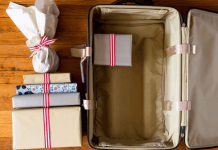Are you planning to have a destination wedding? While it’s easy to dream of a magical destination wedding, planning one may seem harder than it seems.
There are many factors to consider, such as time, travel, budget, and accessibility. Before you say “I do” and tie up those knots in a spectacular foreign location away from home, here are some essential tips to help you plan that magical big day.
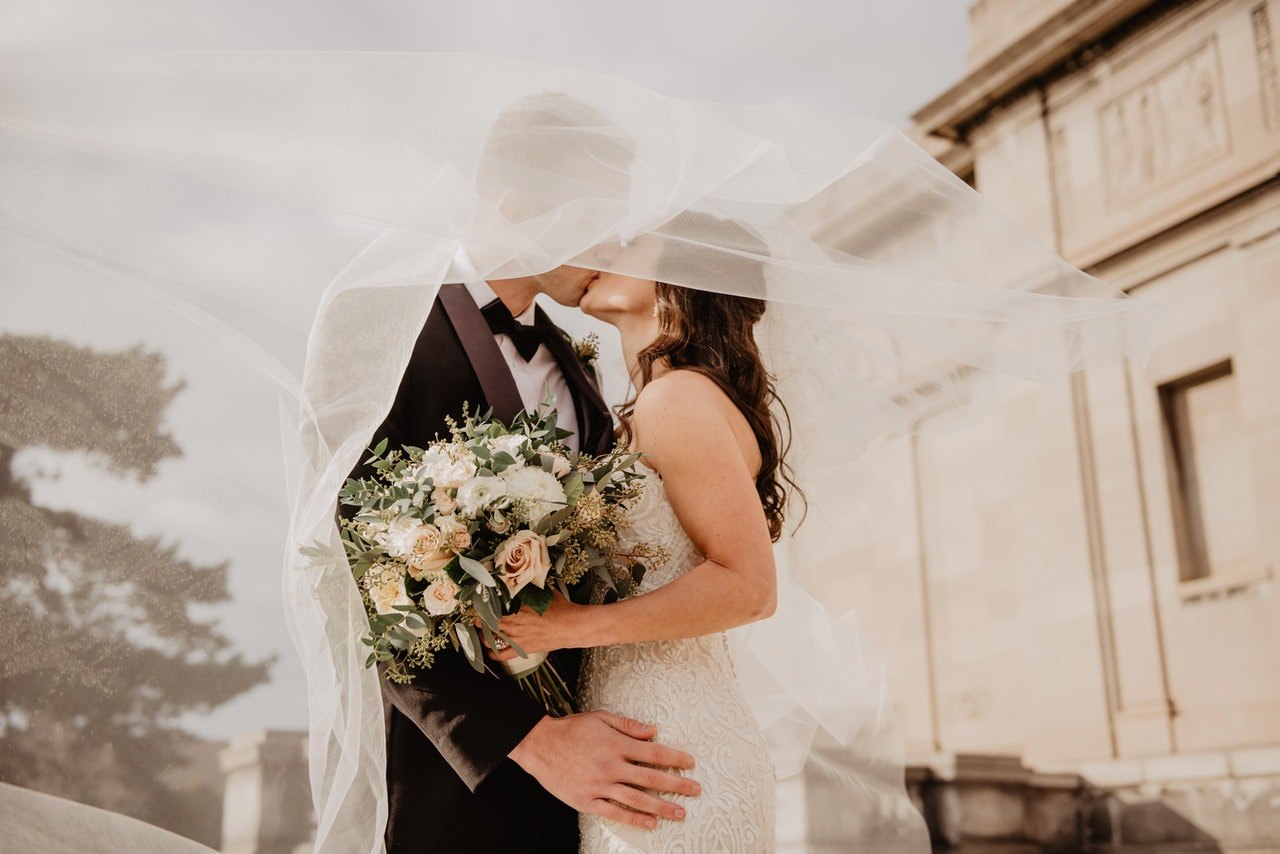
Choose Your Destination Carefully
Choosing a location for a destination wedding must be carefully planned and well-thought of. Couples must consider the destination’s sentimental value and emotional connection to them and the security, availability of resources, accommodation, and accessibility.
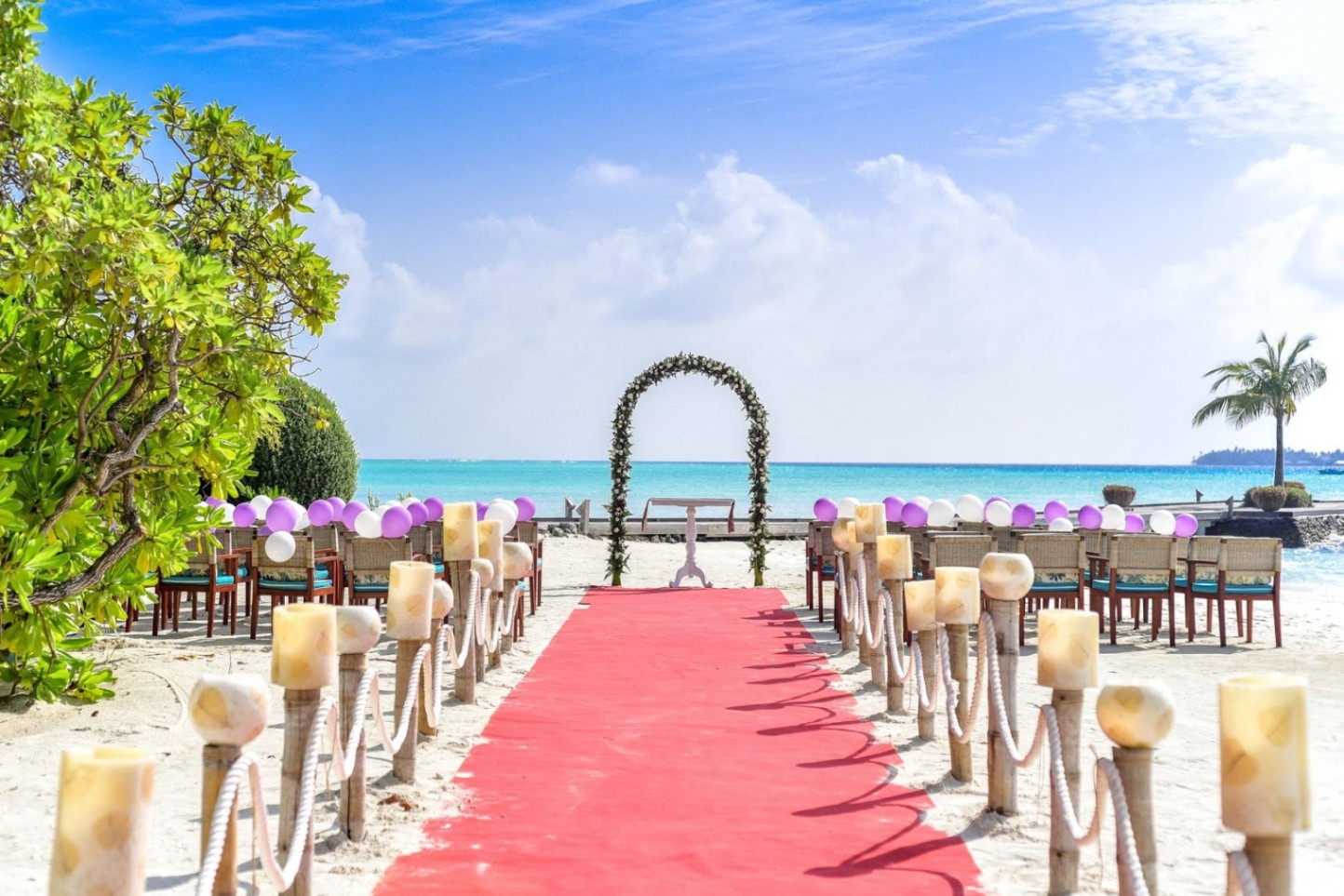
Destination weddings can vary depending on what you have in mind – you can have an intimate wedding by the beach on a tropical island or small chapel atop a hill, or a traditional wedding in a small village somewhere in Asia. You can also host a small wedding in the City of Lights or California or Tuscany for foodies.
Check out recent travel warnings, health concerns, and political issues that might affect your stay in the area. Remember that your destination will determine the overall mood of your wedding, as well as the time, travel, and budget required to make it happen.
Timing Is Everything
After you’ve chosen your destination, it’s time to choose the date! Before handing out those save-the-dates, though, be sure that you have thoroughly researched the best time to stay in your chosen location so that it coincides with the wedding of your dreams.
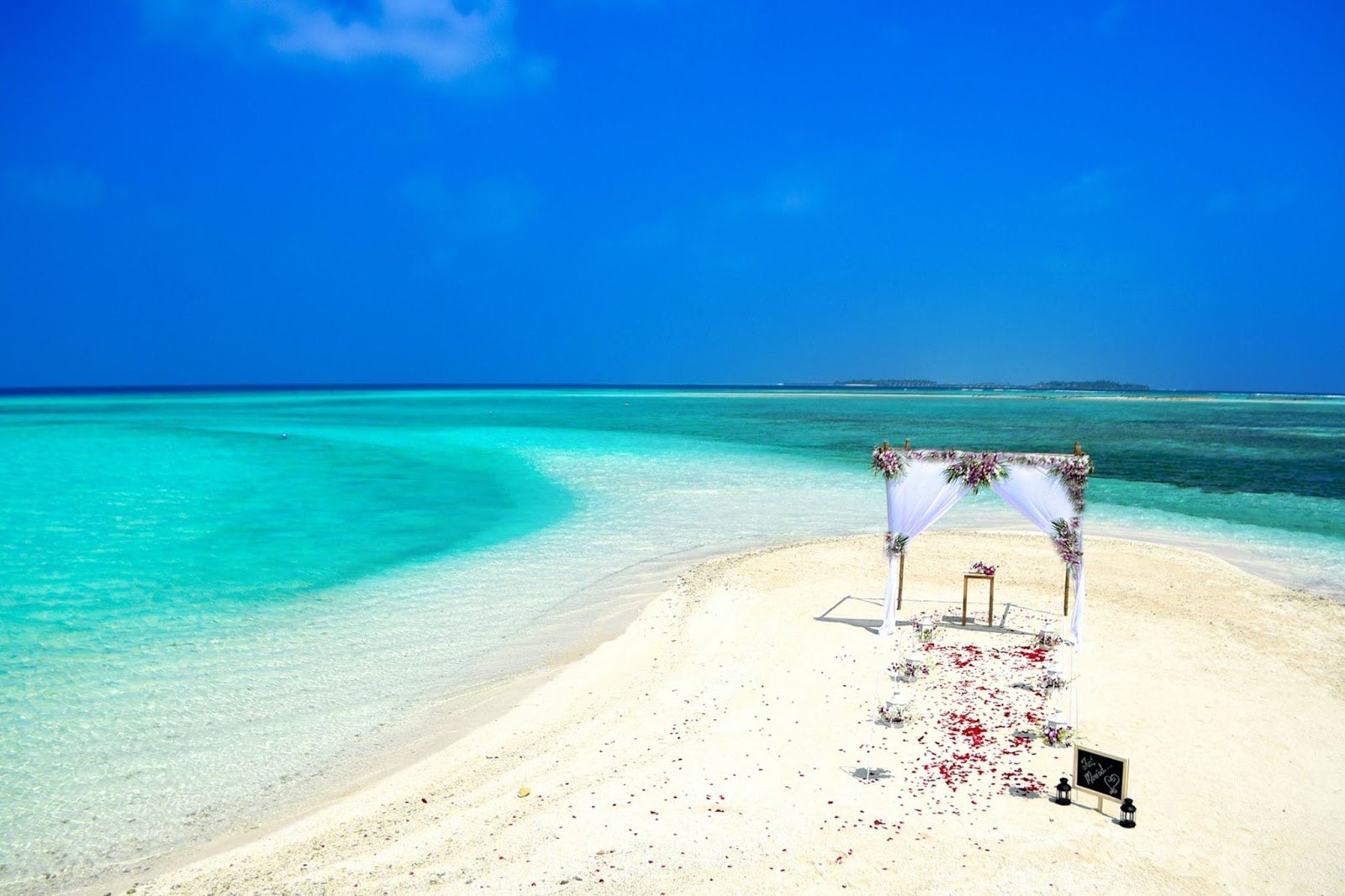
It may be a bummer to know that the best weather in most popular destinations is usually the peak tourist season, where visitors and travelers take advantage of the nice weather. Typically, you’ll be competing with more crowds, making hotels and venues scarce and rates higher.
If you go for the off-season, though, you’ll gamble your chances with bad weather and run the risk of having flights and boat trips canceled. As a solution, couples opt to get wedded months between the peak and off-season to enjoy the weather and season while staying within budget.
Consider Your Guests’ Lodging And Schedules
It’s best to send out your save-the-dates at least eight months in advance to give your guests time to plan their leaves, get the best deal for airfare before the prices skyrocket, and set some finances aside.
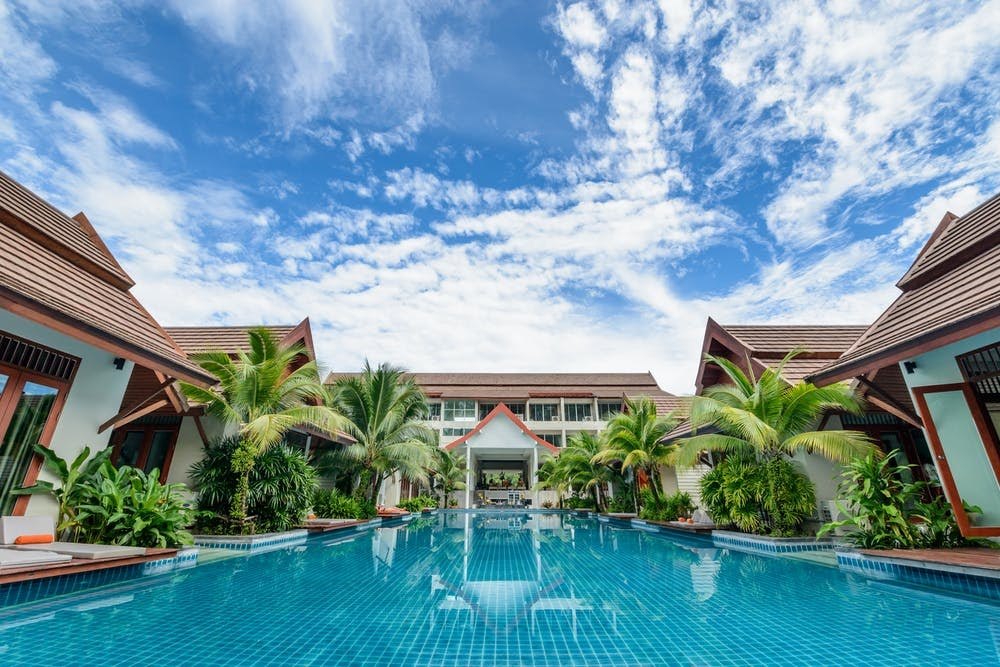
While you are not required to cover the cost of their accommodation, it will be polite to provide enough recommendations that will satisfy a range of budgets. Keep your hotel suggestions within a ten to fifteen-minute radius from the wedding venue. Pro tip: you can avail of room blocks in one area to negotiate lower prices for rooms.
It’s best to inform your bridal party that you’re planning a destination wedding before asking them to stand by your side on your wedding day so they can decline if their finances are tight. Don’t take it personally if some of your closest friends and relatives won’t attend – even though you’re paying for food, the costs for travel and accommodation can take a toll on one’s pocket.
Visit The Place At Least Twice
It is ideal to visit your venue once before booking and again some months before the wedding to finalize details. The first trip is for scouting and securing your venues for the following: hotels for guests, ceremony and reception, and the venue for the rehearsal dinner. During your first trip, you should also search for and select local suppliers for your wedding.

The second trip is important for scheduling “tastings” or “samplings” with the caterer, the florist, the baker, and even the make-up artist (if you won’t be bringing one with you). If you can’t swing by for a second trip, arrive at the venue at least a week before to iron these things out.
Never book a venue without seeing it personally; make it a point to have a visit once before paying those deposits. No matter how pretty these places might look in a picture, there are details a picture might not capture and might surprise you on the day of your special day.
Get Wedding Insurance
What’s wedding insurance, you ask – and is it even important? Remember that you are getting married in a foreign place, so expect the unexpected. Purchasing wedding insurance is an investment you won’t regret.

Wedding insurance will provide you some peace of mind, as well as a safety net, should things go south during your planned day. Some venues will also require you to get wedding insurance, so make sure that you check that out with your chosen venue as well.
Sign up in advance and make sure that you know all there is to know about the coverage and policies in the insurance you’re getting.
Welcome Your Guests With Party Favors
Show some love and appreciation by giving your guests welcome bags upon their arrival. These welcome bags can contain items that suit your wedding theme or showcase the locality of your area. You can also throw in items such as water bottles, maps, snacks, bug spray, and aspirin for their comfort.
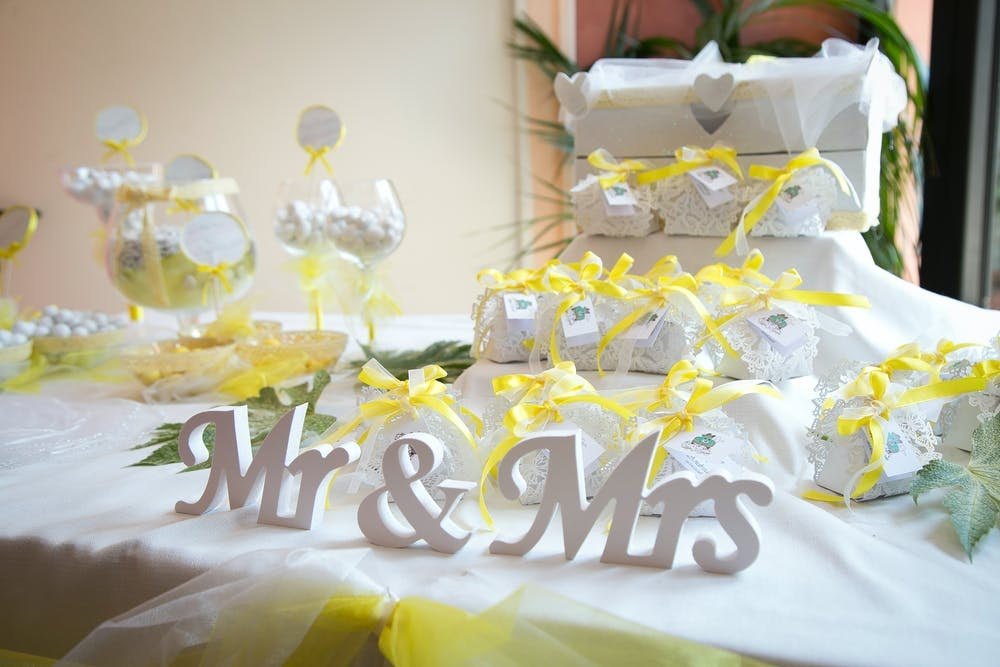
If you’re staying in a warm and tropical area for a beach wedding, why not give your guests some aloe vera or sunscreen? If you’re in for a cold and chilly alpine wedding, provide them with mittens or hot cocoa mixes.
Aside from party favors, make things easier for your guests by creating a wedding website that contains all important details in one place. Include the wedding itinerary, directions to and from the airport, and even a list of activities they can do during downtime. They’ll thank you for this!
Set Aside Budget For Extra Expenses
It’s essential to stay within your budget after choosing a location, setting the date, and finalizing the guest list. Other budget considerations to keep in mind include additional activities for the guests and accommodation for the non-local vendors you’ll be bringing along.

If done right, you can even save more by hosting a destination wedding, that is, if you live in a highly urbanized area where everything is costly – New York, for instance. If you are a New Yorker who plans to hold your wedding in Mexico, you’ll likely spend less even when you include airfare, accommodation, and planning trips!
However, keep in mind to set aside a contingency budget for things that you have overlooked. It’s better to be prepared than sorry! Be realistic and stick to a budget, but don’t be too tight, either!
Check For Local Marriage Requirements
To avoid getting caught up with the technicalities, check out your destination’s local marriage requirements and allot some time to get things in order. Some countries would require the length of residency in a place before being permitted to get wed, which can span from hours to weeks!

If it’s impossible to have your wedding legally recognized due to these requirements, consider making your wedding official by getting a domestic marriage certificate and having a civil ceremony before your departure.
Choose Your Vendors Wisely
Remember that vendors will handle crucial aspects of your wedding, so make sure that you trust them entirely and that you are comfortable with your chosen vendors. These vendors can make or break your ceremony, so it’s best to choose them wisely.

While you can always check portfolios and reviews online, make at least one trip to meet with your vendors to get a feel of their demeanor and personality. If you have a wedding planner, you can delegate that task to them as well. If you don’t, you can set up a video chat – it’s important that you talk to them and lay down your expectations.
Pro tip: bring your most trusted people from home to handle critical aspects such as photography, hair and make-up, venue decoration, and set up to work with and supervise local vendors. This is to avoid miscommunications that can ruin your wedding.
Plan A Fun Itinerary
Make it a commitment to keep your guests entertained during their entire stay for your wedding. It’s a nice and thoughtful gesture to show that you appreciate the time, effort, and money they spent to be with you on your special day. Plan some extra activities for your guests to make their trip worthwhile.

While you don’t have to go nuts for a full wedding weekend, a welcome party to greet everyone and have your guests socialize with each other is a popular choice, aside from the standard rehearsal dinner before the big day.
You can throw in a couple of excursions or interactive activities such as group tours or tastings. If you’re unsure of what to do, ask the hotel you’re staying in for some local recommendations and activities that have a touch of the local flair. It is also standard for a post-wedding luncheon or brunch.
Conclusion
An intimate destination wedding with a handful of loved ones and closest family and friends is indeed a great way to spend, say your I Do’s. Remember these tips and have the time of your life planning your wedding day!























